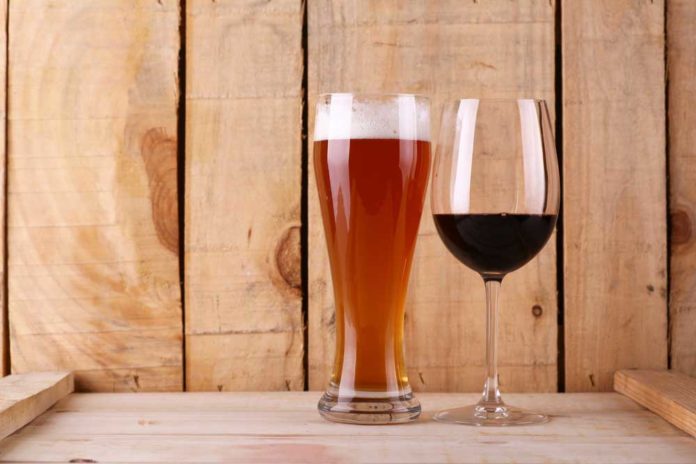What Has More Calories, Beer or Wine?
Before identifying calories in wine versus beer, here is a brief lesson on alcohol… Interestingly, alcohol is actually sometimes called a food related to its caloric content, offering 7 calories per gram to be exact. Alcohol holds a higher calorie load compared to carbohydrate and protein, both containing 4 calories per gram, though is lower in calories compared to fat, providing 9 calories per gram. A serving size of wine (5 ounces, not the entire bottle…) supplies approximately 125 calories. But when it comes to calories in beer, there are many factors that come into play, including the disparities between light and dark beers. In fact, some craft beers can carry up to 300 calories per bottle! But as a general frame of reference, 12 ounces of light or regular beers and 8 to 9 ounces of malt beer supply about 150 calories. And while beer may appear more fattening related to the notorious so-called “beer gut,” either or can result to weight gain relative to the quantity consumed, as excess calories can be transformed and stored as fat.
Are There Any Benefits of Wine or Beer?
When it comes down to it, beer and wine are simply produced from plants; plant-based diets are considered to be healthy, subsequently making both beer and wine all apart of a well-balanced diet, right? Well, towards some degree… The concept of well-balanced cannot be stressed enough, as overdoing it can not only result to an unpleasant morning, but lead to harmful consequences to the body. But when practicing moderation, wine and beer may lead to the following advantages:
Wine
- Most wine drinkers justify wine over beer related to its notorious resveratrol content, which may lower the risk of heart disease and cancer. But as a warning, white wine has previously been linked to skin cancer.
- Along with resveratrol, wine provides a component known as procyanidin, a subset of tannins suggested to support longer life spans. Red wine may lessen the risk of dementia development.
- Research suggests drinking wine improves mental health. Specifically, a study published in BMC Medicine found both men and women were less likely to develop depression following wine intake.
*The benefits of wine are mostly related to red wine, as red grapes are shown to offer higher antioxidant and nutrient concentrations. Find more on the disparities between red versus white wines here.
Beer
- Beer offers valuable nutrients the body utilizes to properly function on a day-to-day basis. In fact, beer is suggested to supply more nutrients than wine, including vitamins B6 and B12 along with folic acid and niacin.
- Beer may lower the likelihood of developing painful kidney stones and disrupt advancing cognitive decline.
- Mostly related to hoppy beer, its intake has shown to increase bone mineral density.
- Though wine is continually suggested as a heart-protectant, there is small evidence suggesting beer, too, can in fact lower the risk of heart disease.
Ultimately, you do not necessarily have to choose between (red) wine and beer, but rather adhere to recommended portions and servings (two servings per day for men and one serving per day for women). Additionally, healthcare professionals suggest despite the potential benefits each may offer, individuals who did not drink previously are not encouraged to do so now. But if you are to drink, whether with a beer bottle or glass of wine, cheers to the practice of moderation!






